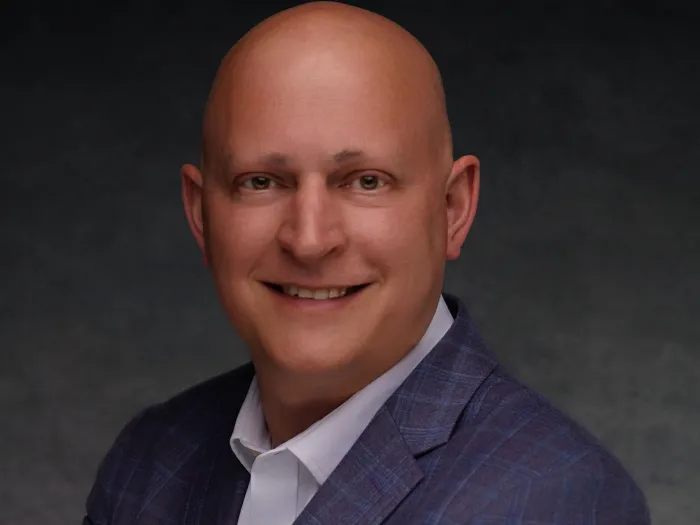Delivering ‘a grammar of faith that can help us become the church God has always intended us to be’
The Rev. Dr. José Irizarry delivers a prophetic sermon during chapel service for the PC(USA)'s national staff


LOUISVILLE — During Wednesday’s online worship service four days ahead of Theological Education/Seminaries Sunday, national staff of the Presbyterian Church (U.S.A.) were privileged to hear a sermon from the Rev. Dr. José Irizarry, the president of Austin Presbyterian Theological Seminary. The Rev. Bill Davis, Senior Director of Theological Education Funds Development for the Presbyterian Foundation, helped lead worship, reading from James 3:1-12, one of the lectionary passages for Sept. 15.
That reading “was selected a long time ago,” Irizarry noted. “But even lectionary skeptics must accept that now and then the biblical texts collide with issues of the time in surprisingly relevant ways. Let’s call it the movement of the Spirit.”
Irizarry spoke just a few hours after the presidential debate and just as the nation was observing the 23rd anniversary of the Sept. 11 attacks, a day “our paradigms shifted radically,” he said. “We discovered that for all the talk about this country’s power and goodness, we were indeed vulnerable.”
In the epistle reading for Sunday, James “cautions us to be attentive to our speech as an essential practice of our faith,” Irizarry said. “James was speaking to a church that was dispersed and out of the control of centralized leadership. He is deeply concerned that the adverse situations around them will make them turn away from the perfect law conveyed by Jesus Christ.”
“There’s no doubt that Christian churches continue to speak and be listened to within our culture,” Irizarry said. “But in doing so, it cannot fully claim that the language it uses echoes God’s eternal word in Christ.”
The church “that is listened to in our society sometimes promises material or spiritual prosperity by presenting itself like any other commodity in the market where an exchange of goods happens. I give, and make sure I receive in return. If I don’t receive, I complain,” he said. “When the church that is listened to departs significantly from the word as exemplified by the ministry and proclamation of Jesus Christ, the whole witness of the church is in peril — even the church that tries to follow God’s word in Christ faithfully.”
As a preacher, “I am not telling you we need to create a new church,” Irizarry said. “I am telling you we need to decide if we want to start a creative moment at church — for that decision, I think, will determine our future and the ways our congregations and worshiping communities will foster … spiritual growth and faithful engagement with the world.”
We ought to start this creative work “like it started at the beginning of time, at Creation, with words, with proper words," he said. "As people learning a second or third language pay attention to native speakers, there are many people out there who are seeking the best speakers of ‘God talk,’ those who can speak to Christian ways that reflect the desire to be closer to Jesus’ message of love, acceptance, reconciliation and healing. People are looking for those speakers, but sometimes they don’t find them in the church.”
Some people dismiss the Book of James “for presenting a message of grace that’s very different from the vision that Paul suggests,” he said. “Here James emphasizes the importance of our actions and deeds — not because they are superior to faith, but because our actions are embodiments of our words of faith.”
We’re all ministers of our words, according to Irizarry. “These words require the same tending that our bodies and souls need to feel connected to God.” The church needs a new lexicon, he said, one that “refuses to give prominence to the language that people find unappealing and disturbing in today’s Christianity,” such as the “heaven and hell narrative of reward and punishment” which “may not be the words that the gospel of Christ is telling us to embody.”
For those who may doubt that, Irizarry suggested walking around the neighborhood and asking strangers “to tell you three words they associate with the church. When you’re done with that exercise, you will come back to your place of prayer and will ask God to lift your spirits from total disappointment.”
It's time “to reconstruct our ecclesial identity, where words of unconditional love, radical hospitality and inclusion … become the essence and substance of our message,” Irizarry said. “When these words take prominence in our proclamation of the gospel, the rest becomes unnecessary chatter.”
By repeating the words “again and again in the context of our worship, our proclamation, our ministries, our mission and our relationships, we are recovering a grammar of faith that can help us become the church God has always intended us to be,” he said.
“What should always prevail in our speech is the word of God. Under that word is the church’s proclamation, and those words of proclamation are yours,” he said. “Amen.”
You may freely reuse and distribute this article in its entirety for non-commercial purposes in any medium. Please include author attribution, photography credits, and a link to the original article. This work is licensed under a Creative Commons Attribution-NonCommercial-NoDeratives 4.0 International License.




